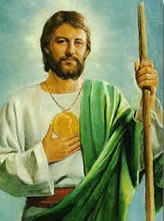The Monthly Note
August
The double action of all Christian life
by Émery Désilets, o.p.
The feast of Transfiguration, celebrated during the month of August, explains this double action: we climb up the mountain to meet God and then climb down from it to walk on the land, along with Jesus, listening to His Word, and living according to His Spirit.
Climbing the mountain is a meaningful and powerful biblical image. In the biblical tradition, the mountain is a meeting place with God, a place of revelations and of departure to missions. Let us think of the Sinaï and Horeb mountains, the Beatitudes, the transfiguration and of the visions.
In our Christian life, climbing the mountain means to soar up, to elevate oneself with respect to our daily world; we have to give ourselves downbeats to meet God, to form a relationship with Him, to be more receptive to His Word. That is what Jesus did all His life: He would often retreat in mountain, to pray.
For us as well, it is important to find time to climb the mountain, to discover who is God, who is the One that walks with us. We should not escape our responsibilities to fall in a sickly Pietism. That was Peter’s temptation: let us put three tents. It is just as important to climb up the mountain to meet God than it is to come down from it to walk with Jesus in our daily life, on the road to Jerusalem which is the road of our life.
The road to Jerusalem was not easy for Jesus and His Apostles. It was the road of Passion, but also the road of resurrection and of triumph of life over death: the road of the true transfiguration. This is the road that He invites us to take, in assuming our human condition and our responsibilities as Christians. In certain moments, this road may seem foggy. This is why it is important for us to keep some strong moments so the light of Christ may shine upon us. This way, we will then see everything through Christ’s eyes: our life will become transfigured.
«In those days he departed to the mountain to pray, and he spent the night in prayer to God»(Lk 6,12).


